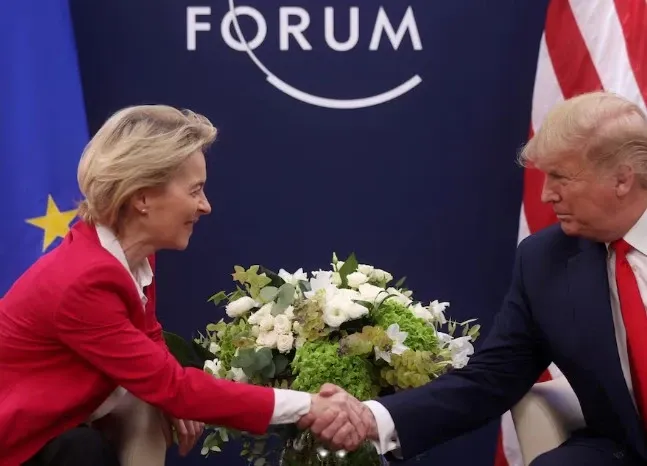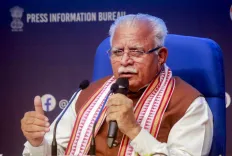Is the EU Facing Challenges in Securing a Trade Deal with the US by July 9?

Synopsis
Key Takeaways
- EU's Commitment: The EU is determined to finalize a trade deal with the US by July 9.
- Tariff Increase: The US recently raised tariffs on steel and aluminum imports to 50 percent.
- Negotiation Challenges: The complexity of negotiating with 27 nations poses significant challenges.
- Diplomatic Efforts: Both parties are engaged in ongoing discussions to navigate these tensions.
- Future of Trade Relations: The outcome of these negotiations will have lasting impacts on transatlantic trade.
Brussels, June 15 (NationPress) President Ursula von der Leyen of the European Commission has reaffirmed the European Union's (EU) dedication to securing a favorable trade agreement with the United States before July 9 during a recent phone conversation with US President Donald Trump.
In a message shared on social media platform X, von der Leyen stated on Saturday that she had a productive discussion with President Trump ahead of the G7 Summit.
The recent action by the US government to increase tariffs on steel and aluminum imports to 50 percent took effect earlier this month, heightening a trade conflict that has raised significant concerns among European manufacturers, who caution that the hefty new tariffs could severely impact the industry, as reported by Xinhua.
On May 26, European Commissioner for Trade and Economic Security Maros Sefcovic echoed similar sentiments after Trump remarked that negotiations with the 27-member bloc were 'going nowhere' and threatened to impose a 50 percent tariff on all EU imports starting June 1.
In response to von der Leyen’s outreach, Trump agreed to postpone the proposed tariff increase until July 9.
According to von der Leyen's announcement on Saturday, the two leaders also talked about the situations in the Middle East and Ukraine during their phone call.
US Commerce Secretary Howard Lutnick mentioned on June 11 that the European Union is likely to be among the last agreements the US finalizes, as the administration rushes to secure tariff pacts with other trading partners.
Lutnick, expressing frustration with the EU, indicated that discussions have gained momentum following President Trump's warning to raise tariffs to 50 percent—a move he has delayed until July 9 to facilitate further negotiations—but progress remains sluggish compared to other engagements.
The Commerce chief remarked, 'Europe was more than thorny' before Trump's ultimatum, and then, 'all of the sudden they got a little religion and made a proper offer'.
The US and EU have been navigating trade terms ahead of the July deadline.
EU trade chief Sefcovic has maintained regular contact with Lutnick and US Trade Representative Jamieson Greer since both sides agreed to expedite negotiations two weeks ago.
However, the EU anticipates that trade talks with the US may extend beyond the deadline, with officials viewing an agreement on the principles of a deal by that date as the best-case scenario, allowing additional time to iron out specific details, according to sources familiar with the situation.
Officials from the Trump administration have expressed frustration over negotiations with the EU, citing the complexity of reaching an agreement with a coalition of 27 nations with varying priorities.
US Treasury Secretary Scott Bessent, in a May interview with Bloomberg Television, stated that most US trading partners have been negotiating 'in very good faith', but singled out the EU as an 'exception'.
He also accused the bloc of facing a 'collective action problem'.
The EU has faced challenges in understanding what Trump desires from the discussions.









